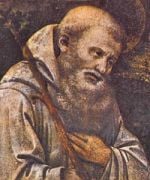Pennsylvania bishops discuss religious liberty in election statement
November 02, 2012
Free eBook:

|
| Free eBook: The Documents of Vatican II |
Reflecting on the relationship between Church and state and emphasizing religious liberty, the bishops of Pennsylvania have issued a statement on the 2012 elections.
“Americans would do well to realize that many of our country’s leading thinkers in law, higher education, and the social sciences simply no longer believe in the idea of inalienable natural rights guaranteed by a Creator higher than the State – one of the cornerstone principles of the American experiment,” the bishops said in their November 1 statement.
The bishops added:
Consider today’s aggressive efforts to redefine the nature of marriage, to exclude parental authority in the choice of the best education for their children, and to force Catholic healthcare and social services to end their ministries unless they violate their religious identities through mandated support of practices contrary to the very sanctity of human life. Religious liberty itself – “our first, most cherished freedom” – is no longer secure …
In recent years a pattern of legislative and judicial actions has emerged in our country that undermines religious liberty and jeopardizes the contributions of religious bodies in the public realm. Government policies that seek to impose morally repugnant services on religiously affiliated medical providers, or to limit the freedom of religion to the private realm or to places of worship, or to reduce religious liberty to just another subset of freedom of speech and association, get it backwards; under the Constitution, it is government power that is limited and subject to regulation, not the conscience rights of Americans – whether acting singly, or in organized communities, or through their institutions.
Today Catholics face a growing and deeply troubling effort that seeks to extend the reach of government into every aspect of social life. In turn, this generates a demand for exclusive allegiance of individuals and groups to the requirements of the State. This demand denies the primacy of associations that exist prior to the State, such as the family, church or synagogue, and even fraternal and charitable agencies. These groups enjoy a priority both chronologically, in terms of historical development, and practically, inasmuch as they engage the vast majority of activity in our everyday lives.
“As Christians we do owe an appropriate loyalty to the State,” the bishops continued. “We strive to maintain good relations with civil authority. But our primary allegiance must always be to God and to God alone. As St. Thomas More once said so eloquently, we are God’s good servants first. That is the nature of our personal calling; that is our human mission; and that is something we cannot forsake without betraying our baptism.”
For all current news, visit our News home page.
Further information:
All comments are moderated. To lighten our editing burden, only current donors are allowed to Sound Off. If you are a current donor, log in to see the comment form; otherwise please support our work, and Sound Off!






